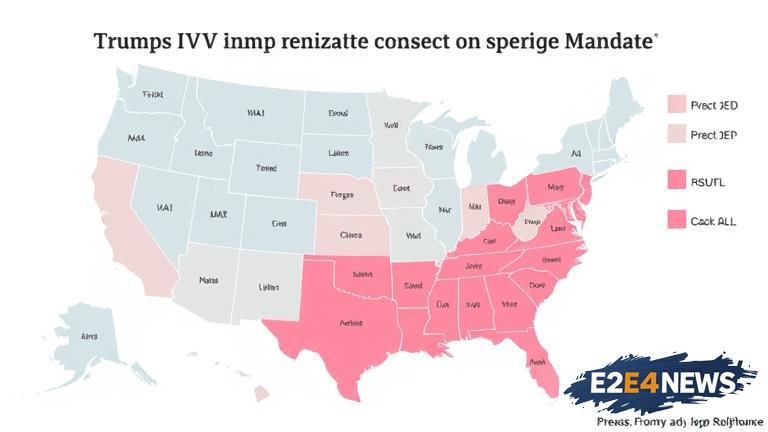The Trump administration has been considering a plan to require insurance companies to cover IVF treatments, but a recent report suggests that the administration may be walking back this plan. The proposal, which was announced earlier this year, aimed to provide insurance coverage for IVF treatments to individuals and families struggling with infertility. However, the plan has faced opposition from some conservative groups and lawmakers, who argue that it would infringe upon the rights of employers and insurers who object to covering such treatments on moral or religious grounds. The report suggests that the administration may be rethinking its approach in response to this opposition. IVF treatments are a common solution for individuals and families struggling with infertility, but they can be expensive and are not always covered by insurance. The cost of IVF treatments can range from $10,000 to $20,000 per cycle, making it a significant financial burden for many families. The proposal to mandate insurance coverage for IVF treatments was seen as a major victory for advocates of reproductive health and infertility awareness. However, the plan has also been criticized by some who argue that it would lead to increased healthcare costs and potentially infringe upon the rights of employers and insurers. The Trump administration has been under pressure from conservative groups and lawmakers to reconsider the plan, and it appears that the administration may be taking a step back. The report suggests that the administration may instead focus on other initiatives to support individuals and families struggling with infertility, such as increasing funding for infertility research and awareness programs. This move could be seen as a compromise between the administration’s goal of supporting reproductive health and the concerns of conservative groups and lawmakers. The decision to reconsider the IVF insurance mandate plan has been met with mixed reactions from advocacy groups and lawmakers. Some have expressed disappointment and frustration, arguing that the plan would have provided critical support to individuals and families struggling with infertility. Others have praised the administration’s decision, arguing that it would have led to increased healthcare costs and potentially infringed upon the rights of employers and insurers. The issue of IVF insurance coverage is complex and contentious, with different stakeholders holding different views on the matter. While some argue that IVF treatments are a necessary and important aspect of reproductive healthcare, others argue that they are not essential and should not be mandated by the government. The Trump administration’s decision to reconsider the IVF insurance mandate plan reflects the ongoing debate and controversy surrounding this issue. As the administration continues to weigh its options and consider alternative initiatives to support individuals and families struggling with infertility, it is likely that the issue will remain a topic of discussion and debate in the coming months. The report highlights the challenges and complexities of developing policies to support reproductive health and infertility awareness, and the need for careful consideration and compromise. The Trump administration’s decision to reconsider the IVF insurance mandate plan is a significant development in this area, and it will be important to monitor the administration’s next steps and the reactions of advocacy groups and lawmakers. The issue of IVF insurance coverage is not only a matter of healthcare policy, but also a matter of social and cultural values. The debate surrounding this issue reflects deeper questions about the role of government in supporting reproductive health and the balance between individual rights and freedoms. As the Trump administration continues to navigate this complex issue, it is likely that the debate will continue to evolve and unfold in the coming months. The report suggests that the administration may be seeking to find a middle ground that balances the needs and concerns of different stakeholders, and it will be important to watch how this develops. The decision to reconsider the IVF insurance mandate plan has significant implications for individuals and families struggling with infertility, as well as for the broader healthcare system. It highlights the need for ongoing discussion and debate about the role of government in supporting reproductive health and the balance between individual rights and freedoms. The Trump administration’s approach to this issue will be closely watched in the coming months, and it is likely that the debate will continue to be a major topic of discussion and controversy.





